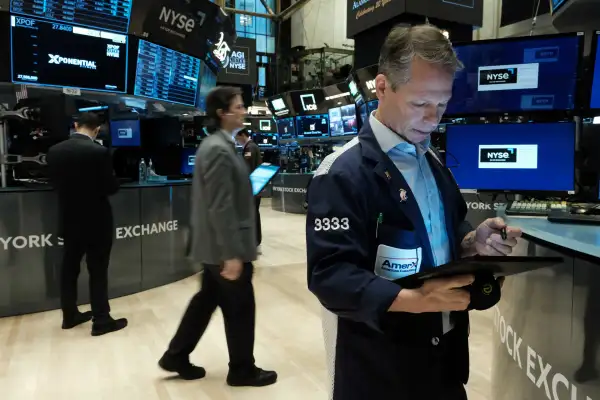What the Boom in Stock Buybacks Means for Investors
Money is not a client of any investment adviser featured on this page. The information provided on this page is for educational purposes only and is not intended as investment advice. Money does not offer advisory services.

Companies are buying back their own stock at a rapid clip despite a new tax meant to discourage them.
So far this year, U.S. companies have announced nearly $224 billion worth of planned buybacks, compared to $189.5 billion during the same time period in 2022, according to Birinyi Associates. Those companies include Chevron, which announced a $75 billion buyback in January, and Facebook-parent Meta, which said it plans to buy back $40 billion of its stock.
Last year planned buybacks hit an all-time high at $1.26 trillion, data complied from Birinyi Associates shows. And we could see another record-breaking year in 2023, says Howard Silverblatt, senior index analyst for S&P Dow Jones Indices. Silverblatt says he expects buybacks to increase this year compared to last due to the pace so far as well as comments from company executives indicating they intend to buy back stock this year. Executives at major companies like J.P. Morgan Chase and Wells Fargo, for example, have indicated they aim to resume stock buybacks in 2023.
Stock buybacks are a way for companies to return profits to shareholders, but they're controversial. This boom in buybacks comes amid a 1% tax on them that went into effect at the beginning of this year.
Here's what investors need to know about stock buybacks and how they impact stock prices.
Why do companies buy back their own stock?
Companies buy back shares they previously sold as a way to return money to shareholders, similar to how they use dividends to reward investors. (Unlike dividends, which are usually paid quarterly, buybacks can be a one-off move.)
"Investors put up money [and] they expect the company to use those resources wisely, create some value and give some of that back to the shareholders," says James Angel, finance professor at Georgetown University.
When making decisions about buybacks and dividends, companies have to consider other ways they could use the money and the growth that they would expect to achieve if they pursue those alternatives as opposed to repurchasing stock, Angel says. For example, instead of buybacks, they could hire more employees, invest in research or buy smaller companies.
"If they have more money than they actually have good growth opportunities, then they should return it to the shareholders," Angel says.
Critics of the practice say that companies should use their profits to make long-term investments instead of rewarding shareholders with buybacks. President Joe Biden signed a law in August that added a 1% tax that companies have to pay on buybacks — but it doesn't appear to be deterring them. Even with the new law, Angel says “it's much more tax efficient to give money to your shareholders with a buyback than it is with a dividend.”
In most cases, dividends are taxed as income, but investors only incur taxes after buybacks if they sell their shares at a higher price and pay capital gains.
Biden said during his recent State of the Union that he wants to raise the buyback tax to 4%, and several Democratic senators introduced a bill to do so last week.
What stock buybacks mean for investors
When companies buy back their own stock, there are fewer shares available for trading, which boosts the price of those that are on the public market.
After a buyback, a company's share price is almost inevitably going to rise, at least in the short term, because buybacks create a shift in the supply and demand for the stock, Silverblatt says.
Here's a hypothetical example: There are 100 shares of a company trading on the public market and each share is worth $10. When a company buys some of its own shares, fewer shares are then on the public market and available to buy, which means those remaining shares are now worth more than $10.
A buyback can also be an indication that a company is doing well, or at least that executives think the stock price undervalues the company, Angel says.
Markets normally interpret buybacks as good news because they show that companies believe in themselves, he adds.
More from Money:
7 Best Online Stock Trading Platforms
The Typical Amount Lost in an Investing Scam Surged to $18,700 Last Year
Stock Market Optimism Is at Its Highest Point Since the End of 2021

